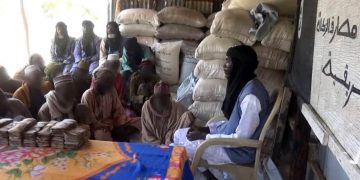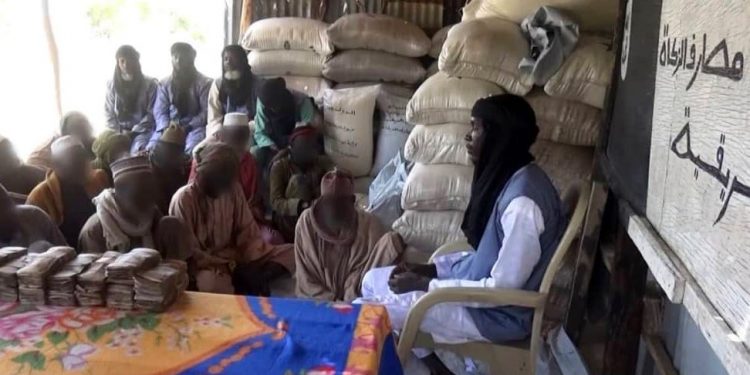Residents of Borno and Yobe have received Ramadan packages from members of the Islamic State-backed faction of Boko Haram, the Islamic State West Africa Province (ISWAP).
Heritage Times gathered that the package distributed by the insurgents included rice, beans, millet, maize, sugar, spageheti and cash gifts.
The insurgents claim the gesture is to help the residents observe the Ramadan fast with ease.
Commenting on the development, a security source said the gesture was to induce the villagers to join the group’s ranks as militants.
“Imagine, they (insurgents) claimed that the gesture was aimed at assisting villagers to perform Ramadan fast and Sallah with ease and happiness, the same villagers they killed their friends and family members,” the source said.
ISWAP’s new approach to recruiting new fighters with cash gifts and food has been proven effective as the population of its fighters had roughly doubled those of Abubakar Shekau-led Boko Haram ever since they went separate ways in 2016.
A 2019 report by the International Crisis Group, a non-profit think tank note that: “Although its leadership has been largely ethnic Kanuri, ISWAP has recruited significantly among lacustrine communities, notably the ethnic Buduma, many of whom earn a living from fishing.”
The Institute for Security Studies (ISS) has made similar observations.
“As part of this approach, the ideological aspect of the crisis must be dealt with. The ability of the group to recruit is one of the biggest reasons for its expansion, and so a deeper understanding of its recruitment patterns and operating mechanisms is crucial,” ISS senior researcher Remadji Hoinathy warned in May 2019.
Often ISWAP exploits gaps in governance by trying to prove that it can provide essential services in the areas under its control.




































